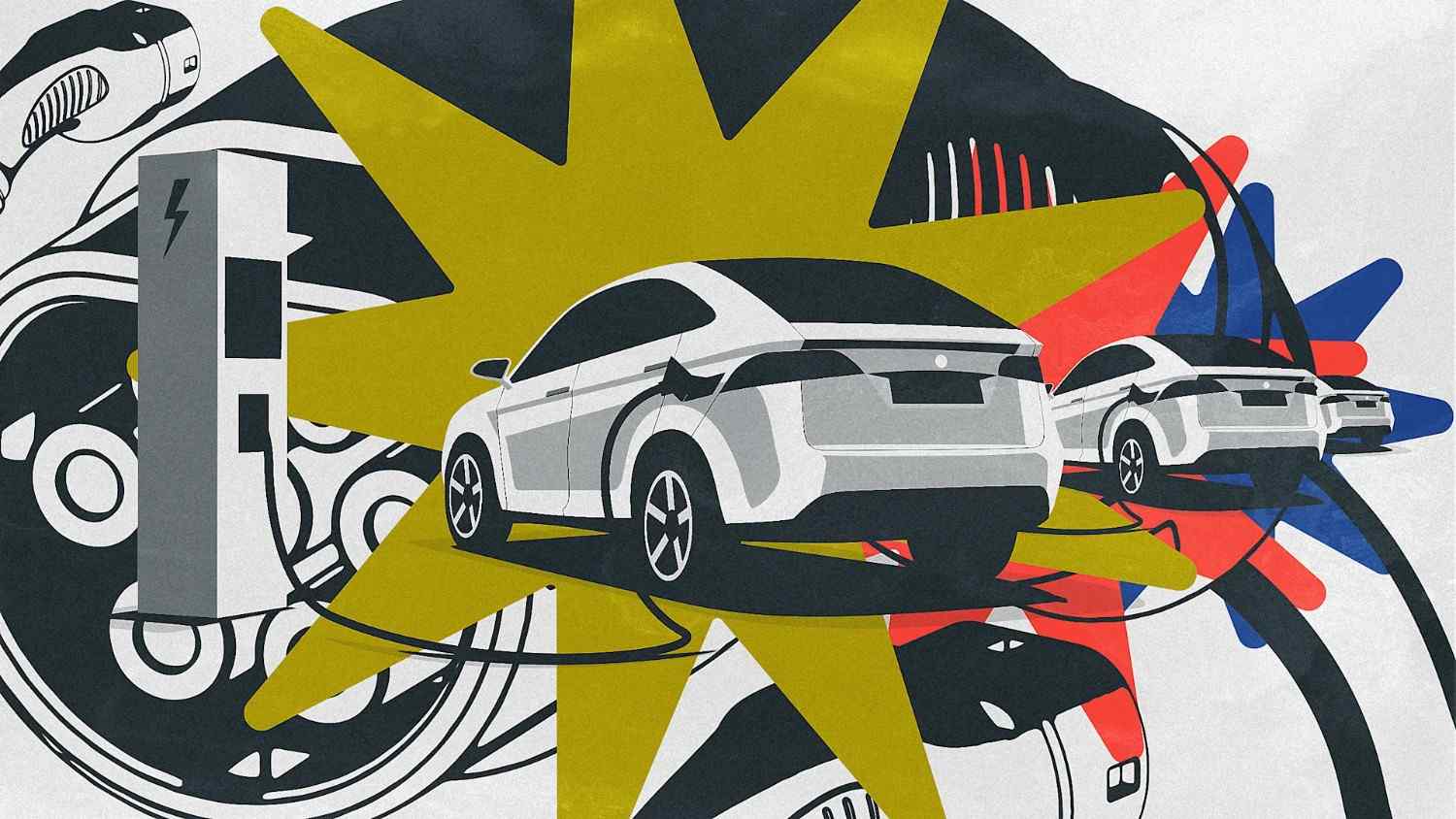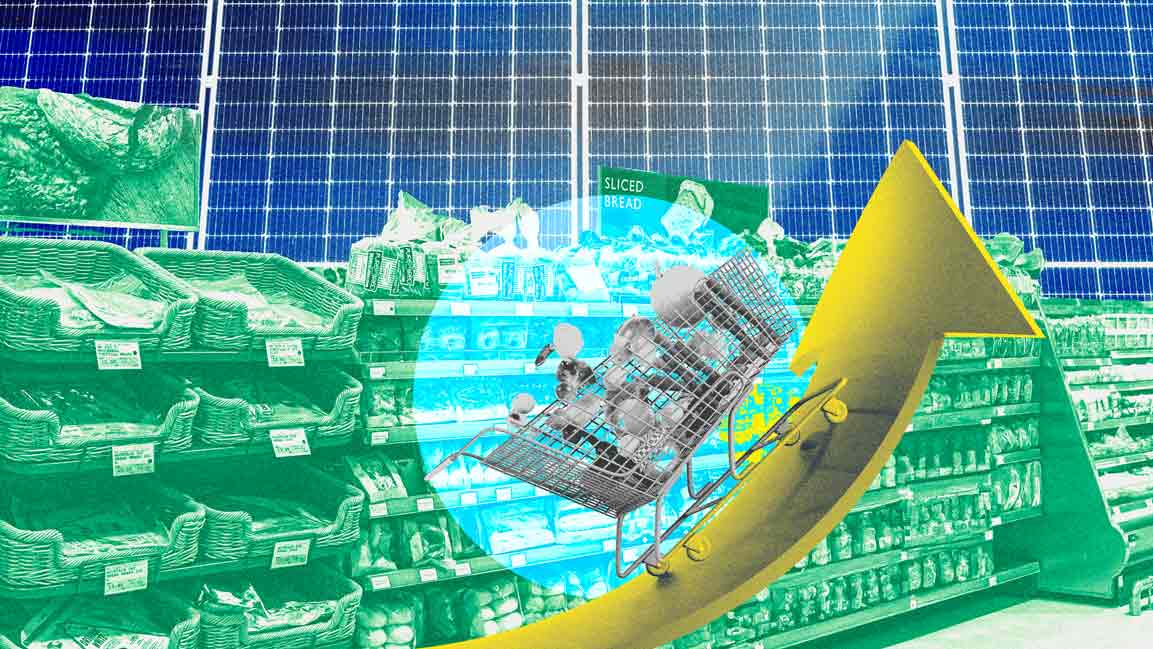- | 9:00 am
Can concerts set the tone for sustainability in the Middle East? It might need to, and soon
Is the environment on your radar while gearing up to watch your favorite artist live?

Who doesn’t love attending concerts? The rush of booking tickets, dressing up, and coming together with scores of fans to sing along with your favorite performers on stage is an incomparable stimulus.
It is the coming together of an unlikely community bound by a passion for live music. And in a post-COVID-19 era marked by stark climate change, a need to be green.
Coldplay’s release of a sustainability report on their Music of the Spheres world tour then comes as a ringing sign of the changing times, signifying the need to transition to an eco-conscious mode.
However, with numerous stakeholders from logistics, freight and transport, energy consumption to F&B vendors, ticketing and merch sales, hospitality, and more to account for — how does one begin?
THE GREEN SERIES INITIATIVE
A major promoter of the UAE’s concert landscape, Live Nation Middle East has embarked on a journey toward the better.
According to their global sustainability study, 82% of live music goers strive to maintain an environmentally sustainable lifestyle. That, alongside the UAE’s target to reduce its carbon footprint by 23% by 2030, led to a partnership with Emirates Nature – WWF to create the Green Series.
Says Nadia Rouchdy, Head of Climate at Emirates Nature – WWF, “In 2022, Live Nation Middle East embarked on a journey to tracking and collecting data for their events, in partnership with Emirates Nature – WWF. It was about understanding where carbon emission hotspots were and identifying [the biggest contributors]. From there, we identified an action plan with Live Nation Middle East for the next two years on how they would address it. We’re basically in the implementation phase of that.”
The initiative kicked off with Maroon 5’s act at Etihad Arena, which included everything from boarding Etihad Airways’s A350 aircraft (25% more fuel efficient), a dedicated fleet of Porsche Taycans (all-electric), eco-rooms and reducing plastic use at the W Abu Dhabi – Yas Island, and of course, the venue’s energy-efficient ways.
Based on this pilot study, the study has been ongoing, with results expected to be revealed around the upcoming COP28.
However, decarbonizing across major industries, especially in the MENA region, is just as challenging as one might expect. While other parts of the world are conducive to buses and even daily tours to artists, the bulk of transport here relies on aviation. Even on a data collection level, Nadia highlights certain challenges.
“There are still data gaps across sectors both locally and globally. Many organizations we engaged with have trouble procuring Scope 3 data (which lies outside the organization). Most of it sits in the supply chain, and engaging suppliers in reporting on their emissions is challenging,” she adds.
A MULTI-STAKEHOLDER MOVEMENT
The Year of Sustainability, culminating in COP28, has meant concerted efforts in the UAE towards embracing greener alternatives across all sectors. However, the challenges are seemingly endless in a sector with these many moving parts.
From planning and production to sourcing and community building, several layers, directly and indirectly, affect concerts’ sustainability.
On a design level, both Etihad Arena and Coca-Cola Arena have been recognized for combining passive design strategies such as incorporating shading features, providing adequate daylight, and incorporating humidity capture AC units and an organic composter, respectively.
“In 2022, we recycled 10 tons of plastic, paper, cans, and 2000 liters of cooking oil. In 2023, an event energy strategy was formed for specific changes to each show, considering event timings, number of guests, and specific areas in use. Since this strategy has been implemented, there has been a 20% reduction in energy usage and a 40% reduction in water usage in public restrooms. We [also] have plans to add solar panels to further support sustainable energy consumption at the arena and have a dedicated team focused on creative solutions,” says Mark Jan Kar, General Manager of Coca-Cola Arena.
However, a more worrying aspect might be the lack of data to verify any information and the subsequent ability to assess its impact and work progressively from there.
On the artist front, one might be predisposed to assume responsibility for turning the tide towards the green. But how feasible is that?
Not very, according to Vian Fernandes of Kerala-based multi-genre band Thaikkudam Bridge, who recently performed in Dubai. “I think Coldplay is where they can think about it. For us, touring and getting the things you need for a show is a big task. So, all of these factors are miles away. We think about these things on a micro-level, but as artists, we cannot make these demands.”
Online indie sensation and creator of Maqta, Sarthak Karkare, says access to renewable energy sources is still a bastion of the rich and famous, at least on average. “Coldplay has a sustainability report because they can, in material terms, afford to run their huge productions through these energy sources. While this must be lauded and celebrated, it is almost impossible to achieve for even smaller productions at venues because solar power is an extremely expensive investment.”
Having played and taught music in the UAE since 2001, Bechir Gharbi is no stranger to playing oud at various events, including the Dubai Opera. However, he says, “We are unaware of any eco-friendly initiatives from the venues. Nobody in the industry talks about this.”
CAN CONCERT-GOERS AFFECT CHANGE?
While phrases like carbon footprint have become part of the common lexicon, how can we as an audience make a difference before hitting “book.”
“The biggest opportunity I see is through engaging fans. For a long time, climate change seemed high up in the hierarchy of needs and didn’t touch the everyday person. Live music and these events showcase how sustainability needs to be built across sectors,” says Nadia.
The emergence of virtual concerts during the pandemic signaled the possibility of a greener option, alongside benefits like increased intimate spaces and accessibility. Artists like Swae Lee, Travis Scott, Ellie Goulding, and more are just a drop in the bucket of those who were then able to give back to the community in a whole new way.
Artists like Erykah Badu could also monetize the same through exclusive concerts on their website, merchandising, and music streams. While the atmosphere of a live-music event cannot be replicated, virtual events are certainly too valuable an alternative to dismiss.
The biggest takeaway remains the need for several sectors to align for significant change. Nadia says, “If I move the needle, and my household and the community do it, we need that to happen. It (Coldplay alone) is not enough; that’s obvious. We know that we’re not on the course toward reaching 1.5 degrees. But what we do need is inspiring stories and demonstrative actions that are contributing towards sustainability.”
Another thing to take into consideration while planning your next concert fit.







































